.jpg)
Artificial intelligence (AI) and machine learning (ML) have a rapidly growing presence in today’s world, with applications ranging from heavy industry to education. From streamlining operations to informing better decision making, it has become clear that this technology has the potential to truly revolutionize how the everyday world works.
While AI and ML can be applied to nearly every sector, once the technology advances enough, there are many fields that are either reaping the benefits of AI right now or that soon will be. According to a panel of McMarvin AI Council members, here are few industries that will soon be revolutionized by AI.

1. Cybersecurity
The enterprise attack surface is massive. There are countless permutations and combinations in which the adversary can get in.
It is exceptionally hard for organizations to analyze and improve their security posture.
With its power to bring complex reasoning and self-learning in an automated fashion at massive scale,
AI will be a game-changer in how we improve our cyber-resilience.
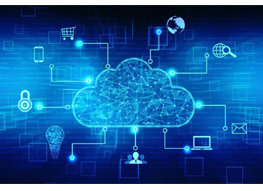
2. DevOps And Cloud Hosting
AI is starting to make its mark in DevOps. Currently, Amazon has rolled out machine learning for their Elastic Compute Cloud (EC2) instances, which applies to predictive instance autoscaling. Other cloud vendors are following suit with similar technology. Within the next 10 years, We see the same being applied to bigger things like code deployments and infrastructure provisioning.
-
3. Manufacturing
Artificial intelligence in the world of manufacturing has limitless potential. From preventative maintenance to the automation of human tasks, AI will enable more efficient work that’s less prone to error and has higher quality. Initiatives from tech giants like Microsoft (AI for Accessibility) and smaller leading companies like AtBot will revolutionize AI for all information workers.
-
4. Healthcare
Healthcare is only starting on its AI journey. Computer vision against X-rays shows promises to help pinpoint diseases; natural language processing (NLP) shows promises in drug safety; ML shows promises to find patterns within a population. Once we reach a point of true information interoperability, supporting the secure exchange of health data, all these promises will join forces to become breakthroughs for the patients.
-
5. Construction
The construction industry has long been underserved by the technology and software sector. Many new startups like ours are using AI in a big way to slingshot the construction industry into tomorrow. Bringing AI and machine learning into this industry will make the construction process faster, safer and more cost effective by reducing human error and better utilizing big data.
-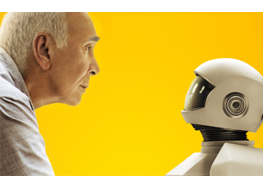
6. Senior Care
With the aging Baby Boomer generation, we need solutions that provide continued efficiency for seniors to make them feel more confident about living alone or receiving support from their caregivers. While AI may not be able to understand the cultural, physical and emotional needs of people, it can provide updates to many outdated resources.
-
7. Retail
The retail industry will be one that is most impacted by AI. Its global spending is expected to grow to $7.3 billion per year by 2022. Retailers will use augmented and virtual reality functionality in advertising. Immersive product catalog visualization will grow dramatically, and shoppers will experience products before buying. It’s predicted that by 2020, chatbots will power 85% of all customer service interactions.
-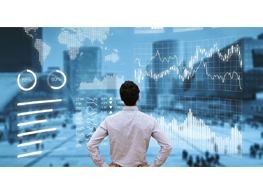
8. Business Intelligence
Enterprises are overwhelmed by the volume of data generated by their customers, tools and processes. They are finding traditional business intelligence tools are failing. Spreadsheets and dashboards will be replaced by AI-powered tools that explore data, find insights and make recommendations automatically. These tools will change the way companies use data and make decisions.
-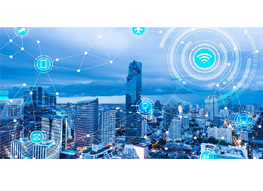
9. City Planning
Infrastructure planning and development will get a big boost from AI. So much data can be processed and organized to help understand urban areas and how they are changing. AI data can also provide a different way of looking at growth and development, utility use, safety, and more.
-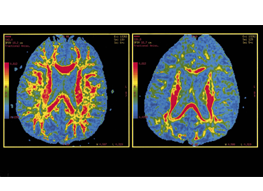
10. Mental Health Diagnosis And Treatment
We are starting to see an increase in mental health issues among young people. Whether it is device addiction or withdrawal from the physical world, some are starting to isolate themselves online. This can ultimately lead to a breakdown of social cohesion. We see potential in using AI to identify people at risk and recommend therapy before they fall into a hole of depression and hopelessness.
-
11. Education
The basic concepts of education have not changed much across generations, and it is quite obvious that change is needed. The most pressing question is what that change should be and how to achieve it. Harnessing AI to create a personalized, dynamic and effective learning path for any subject can prove to be an amazing enabler for such a revolution.
-
12. Fashion
Using AI to learn about buying patterns of users across the world and predict fashion trends would be a great implementation. Having a great recommendation engine backed by AI would help users tremendously.
-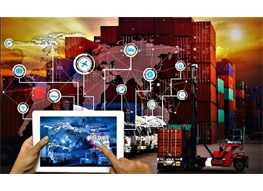
13. Supply Chain Management
AI can account for more factors and complicated nonlinear and correlated dependencies of data much better than a human can do. AI can predict the future without human bias, but with a proper risk assessment, and find optimal decisions even under asymmetric cost profile. This leads to improvements in every decision.
-
14. Agriculture
McMarvin-powered AI helps optimize crop yields
Artificial intelligence holds the promise of driving an agricultural revolution at a time when the world must produce more food using fewer resources.
Based on our research, the most popular applications of AI in agriculture appear to fall into three major categories:
Agricultural Robots –
Companies are developing and programming autonomous robots to handle essential agricultural tasks such as harvesting crops at a higher volume and faster pace than human laborers.
Crop and Soil Monitoring –
Companies are leveraging computer vision and deep-learning algorithms to process data captured by drones and/or software-based technology to monitor crop and soil health.
Predictive Analytics –
Machine learning models are being developed to track and predict various environmental impacts on crop yield such as weather changes.
-

